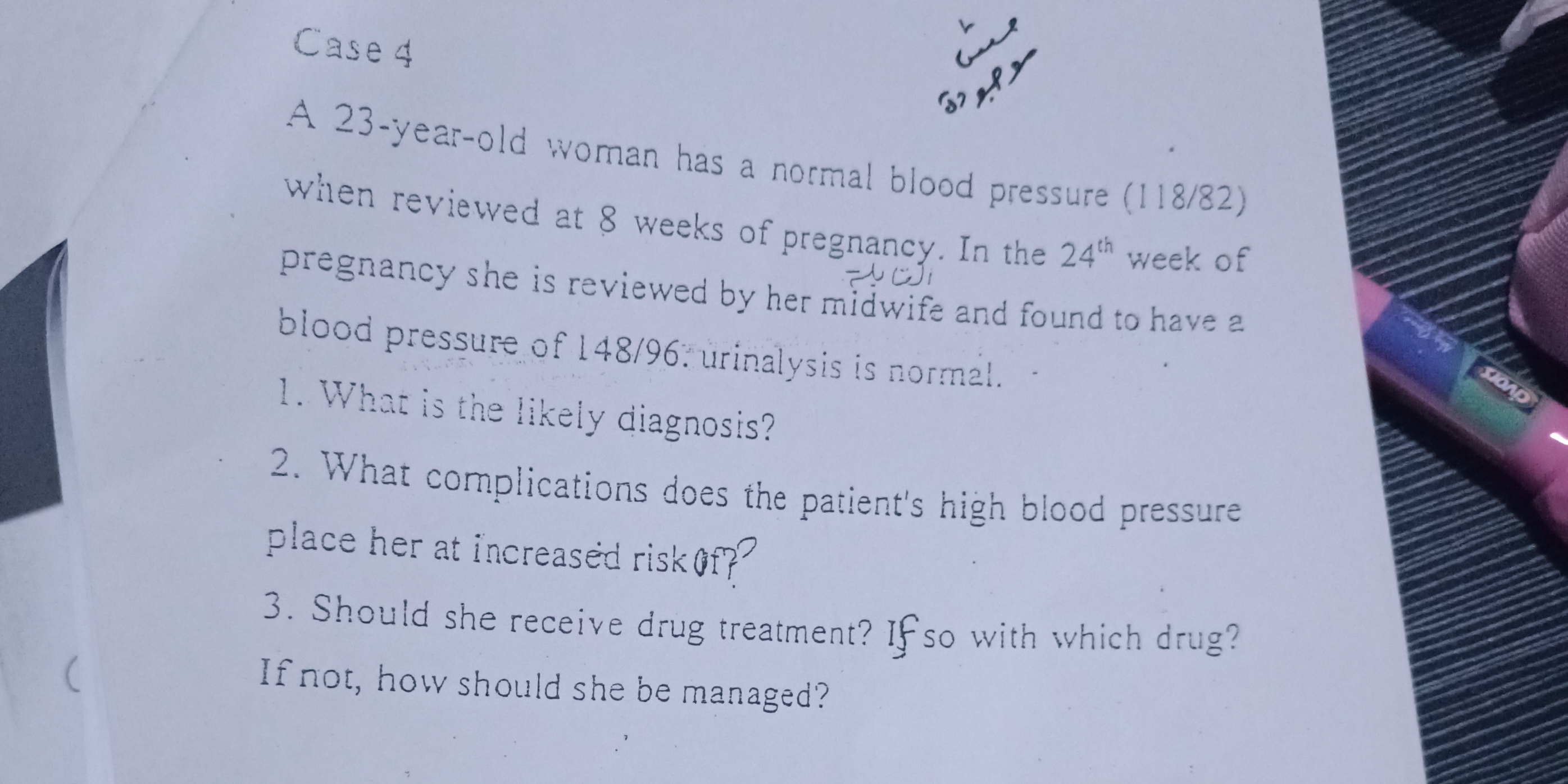A 23-year-old woman has a normal blood pressure (118/82) when reviewed at 8 weeks of pregnancy. In the 24th week of pregnancy, her blood pressure is found to be 148/96. What is the... A 23-year-old woman has a normal blood pressure (118/82) when reviewed at 8 weeks of pregnancy. In the 24th week of pregnancy, her blood pressure is found to be 148/96. What is the likely diagnosis? What complications does the patient's high blood pressure place her at increased risk of? Should she receive drug treatment? If so, with which drug? If not, how should she be managed?

Understand the Problem
The question presents a medical case study involving a pregnant woman who experiences high blood pressure. The questions focus on diagnosing the condition, understanding associated risks, and discussing potential treatment options.
Answer
Gestational hypertension; risk of preeclampsia; manage with labetalol if needed.
The likely diagnosis is gestational hypertension. The patient is at increased risk of complications such as preeclampsia, preterm birth, and placental abruption. Drug treatment might be beneficial if blood pressure is significantly elevated. Labetalol is commonly used, but management should be individualized.
Answer for screen readers
The likely diagnosis is gestational hypertension. The patient is at increased risk of complications such as preeclampsia, preterm birth, and placental abruption. Drug treatment might be beneficial if blood pressure is significantly elevated. Labetalol is commonly used, but management should be individualized.
More Information
Gestational hypertension usually occurs after 20 weeks of pregnancy and is characterized by elevated blood pressure without proteinuria, distinguishing it from preeclampsia.
Tips
A common mistake is confusing gestational hypertension with preeclampsia, which includes proteinuria.
Sources
- Hypertension in pregnancy - Safer Care Victoria - safercare.vic.gov.au
- Maternal Early Warning Signs - Preeclampsia Foundation - preeclampsia.org
AI-generated content may contain errors. Please verify critical information